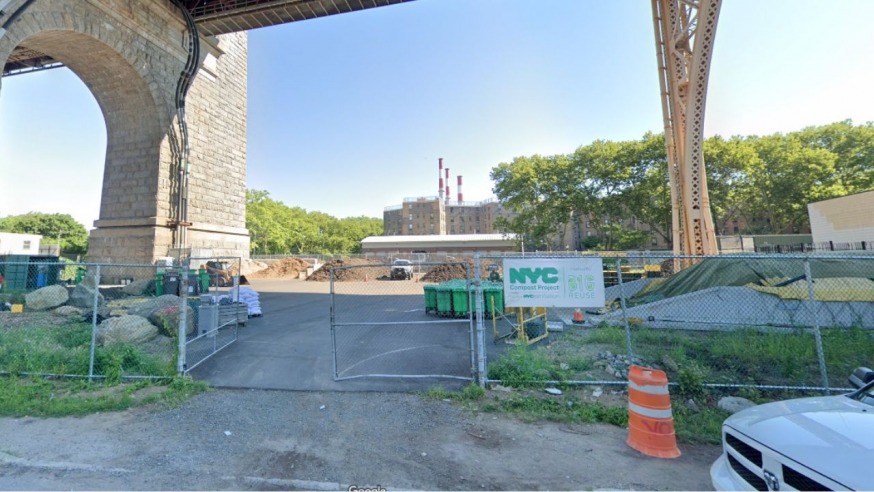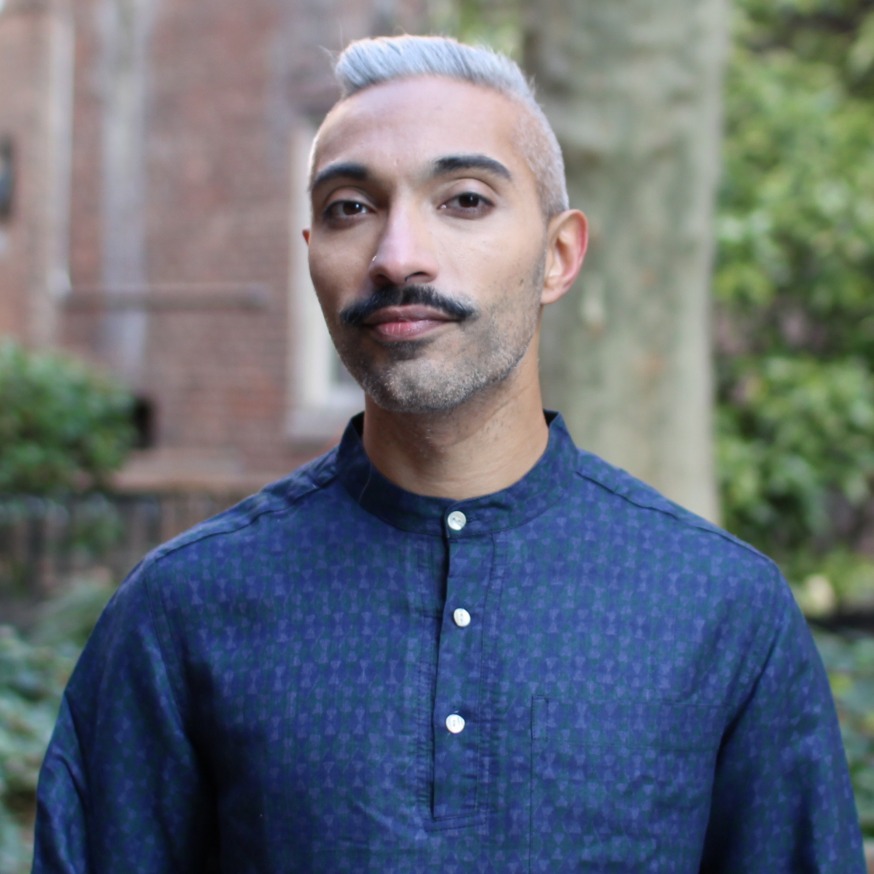
Queensbridge Composting Site (Google)
June 11, 2021 Op-Ed By: Amit Singh Bagga
In New York City, you’d think that the City agency responsible for ensuring we all have a safe, thriving environment would do everything in its power to do just that.
Well, in the case of the NYC Parks Department (“Parks”) and the Big Reuse site underneath the Queensboro Bridge, that just isn’t the case.
For years, the Big Reuse composting site, under the leadership of Executive Director Justin Green, has proven the value of community-based composting on public parkland, diverting more than one million pounds of food waste annually from landfills. In fact, Big Reuse processes over one-third of New York City’s residential compost. But now, Big Reuse faces the imminent threat of eviction by the Parks Department on June 30.
Parks argues that composting can’t continue here because of a 2013 state trial court decision (known as Spring Creek) that the agency interprets as saying that composting isn’t a type of use of parkland that the City can pursue without approval from the State legislature. The agency makes this argument despite having issued Big Reuse a permit to operate at this site in 2017—four years after Spring Creek was decided.
While Parks isn’t wrong that composting isn’t an explicitly permitted use of public parkland under State law, composting isn’t explicitly prohibited, either. Parks’ reading of the Spring Creek decision simply doesn’t apply in the case of Big Reuse because the facts here are vastly different.

Amit Singh Bagga (Photo: Amit For Council)
In addition, recognizing the public benefits that community composting sites like Big Reuse provide, state legislators are considering enacting a permanent fix to State law that would bless the use of public parkland for composting — and as a result of highly organized and effective community organizing across Western Queens led by the folks at Astoria Pug and others, Senate Deputy Majority Leader Michael Gianaris, who represents Long Island City, agreed to sign on to this critical legislation.
In light of all these circumstances, Parks should abandon its confounding march to shut down this enormously vital community asset, and extend Big Reuse’s permit now – period.
The Spring Creek case was brought to challenge a large 20-acre industrial composting site in an East New York park. But it wasn’t necessarily the composting itself that led the Court to shut down the operation. Specifically, the decision cites the very large “size and scope” of the composting facility, and the fact that the composting was “fenced-off from the general public” as the reasons the operation couldn’t continue, and as the New York City Bar’s Environmental Law Committee has explained, the decision does not itself prohibit use of parkland for composting.
By stark contrast, the Big Reuse site is only half an acre and is not only open to the public, but in fact relies on the public in order to be able to operate. This makes it clear that Spring Creek alone cannot be grounds for evicting Big Reuse.
Parks’ additional argument for evicting Big Reuse – that the composting site will interfere with efforts to revitalize Queensbridge Baby Park, which the lot was once part of – is frankly a red herring, as that work is still in planning stages. It will be many years before a rebuilt Baby Park is able to be used. Moreover, as hundreds of local residents (including Council Member Jimmy Van Bramer) have observed, there is no reason Baby Park cannot be designed to coexist with the composting site.
There is no question that the State Legislature should explicitly allow cities to compost on public parkland without having to seek the Legislature’s permission would be the best and most comprehensive fix. But that’s not a reason to apply a court decision rendered on vastly different facts to the Big Reuse site.
Composting is an essential tool in both our battle to fight climate change and the fight to develop more sustainable, livable neighborhoods in Western Queens. Composting keeps food scraps and yard waste out of our landfills, thus reducing emissions of methane—a greenhouse gas that has been found to be significantly more potent in increasing global temperatures than carbon dioxide. The nutrient-rich soil generated from composting also helps reduce the amount of carbon in the air, because soil is the second largest “carbon sink” after oceans.
The initial success of sites like Big Reuse prompted the City to roll out curbside composting, which disappeared in 2020 as a result of pandemic-related budget cuts. Despite a record nearly-$100 billion proposed budget for this upcoming fiscal year, composting is frustratingly nowhere in sight.
Community volunteers have been forced to step in to fill the gap created by the budget cuts, with hundreds of Western Queens residents working through groups like Smiling Hogshead Ranch, Sunnyside-Woodside Composting, Resistance is Fertile, Rusty Wheelbarrow, and others, to keep composting going, despite the City’s dismantling of this critical climate-fighting need.
This past year has been difficult in unprecedented ways, but there’s simply no justification for having only $2.78 million in this past fiscal year’s budget for composting, which amounted to a whopping 0.0032% of the City’s Fiscal Year 2021 budget.
I think we can all agree that fighting climate change is worth more than that in our budget.
Evicting Big Reuse would be devastating to community composting efforts across Western Queens. Many of our streets are already overburdened by the trash we produce due to inadequate City and private sanitation pickup services (another set of services that were cut during the pandemic). Without Big Reuse, over a million pounds of waste would be put out for pickup on city streets every year, and would ultimately wind up in landfills, producing greenhouse gas emissions that fuel climate change.
Preserving and expanding composting is just one element of a broader strategy we need to achieve environmental justice and greener neighborhoods in our city. But with Big Reuse’s eviction deadline looming, few priorities are more urgent.
Central to Parks’ mission is to “build a park system for present and future generations,” and to plan for “resilient and sustainable” parks. In order to fulfil this mission, Parks must read Spring Creek and State law together for what they are – not prohibitions on composting itself – and keep Big Reuse in place. Western Queens’ – and the city’s – climate present and future depend on it.
*Amit S. Bagga is a candidate for City Council in District 26.
One Comment

Thanks Amit for this excellent article!